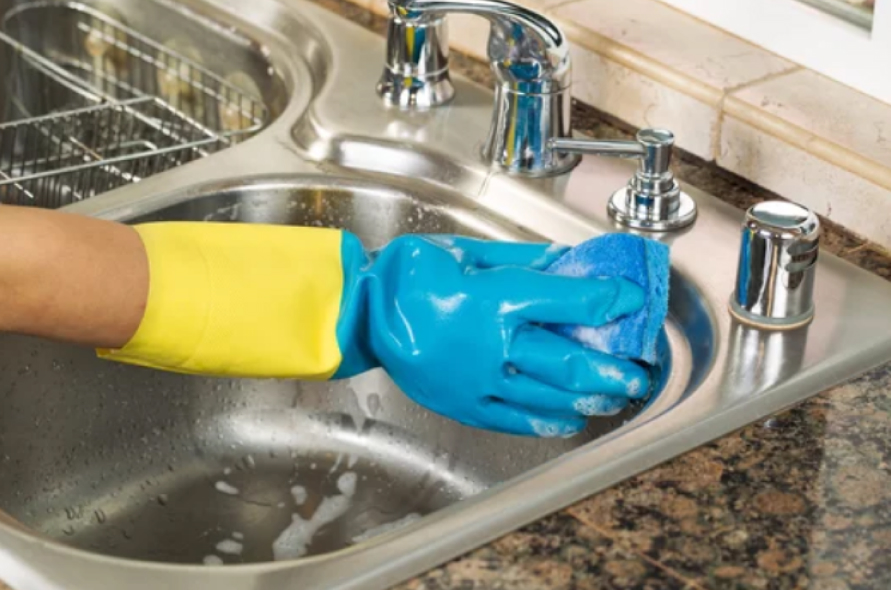
Cleaning Commercial Kitchens How to
Posted by Suji Siv @Clean Group on 2023-05-29
Cleaning Commercial Kitchens How to
Maintaining a clean and sanitary kitchen is crucial in the food service industry. Commercial kitchens, with their high-volume cooking, can quickly become breeding grounds for bacteria and germs if not cleaned properly. In this comprehensive guide, we will provide you with essential tips, techniques, and step-by-step instructions to deep clean and maintain the cleanliness of your commercial kitchen. By following these guidelines, you can ensure a safe and healthy environment for your staff and customers.
Establish a Cleaning Schedule
To keep your commercial kitchen in top shape, it's essential to establish a cleaning schedule. Divide your cleaning tasks into daily, weekly, monthly, and quarterly tasks. Daily tasks may include wiping down surfaces, sanitizing cutting boards, and cleaning grease traps. Weekly tasks may involve cleaning exhaust hoods, degreasing equipment, and deep cleaning refrigerators. Monthly tasks may include descaling coffee machines and cleaning drains. Quarterly tasks may involve deep cleaning ovens, defrosting freezers, and servicing appliances.
Gather the Right Cleaning Supplies
Having the right cleaning supplies is vital for effective cleaning in a commercial kitchen. Stock up on essential items such as degreasers, sanitizers, cleaning cloths, scrub brushes, and gloves. Choose cleaning products that are specifically designed for use in commercial kitchens and meet food safety regulations. Ensure that your cleaning supplies are easily accessible and stored in designated areas to prevent cross-contamination.
Deep Cleaning Appliances and Equipment
Appliances and equipment in a commercial kitchen require regular deep cleaning to remove grease, grime, and food residue. Start by unplugging and disassembling equipment as per manufacturer's instructions. Use warm, soapy water and a non-abrasive scrub brush to clean surfaces thoroughly. Pay special attention to areas that come into contact with food, such as grill grates and range hoods. Rinse with clean water and sanitize surfaces using a food-safe sanitizer. Allow the equipment to dry completely before reassembling and plugging it back in.
Sanitizing Food Preparation Areas
Food preparation areas must be kept clean and sanitized to prevent the spread of bacteria. Start by removing all food debris and scraps from countertops, cutting boards, and sinks. Wash surfaces with hot, soapy water, paying attention to corners and crevices. Rinse thoroughly and sanitize surfaces using an approved sanitizer. Allow surfaces to air dry or use clean, disposable towels. Remember to regularly replace cutting boards and inspect countertops for any damage that could harbor bacteria.
Maintaining a Clean and Safe Floor
A clean and well-maintained floor is essential in a commercial kitchen to prevent slips, trips, and falls. Sweep or vacuum the floor to remove loose debris. Mop the floor using a suitable cleaner and warm water. Pay attention to high-traffic areas and spots prone to spills or grease buildup. Use a non-slip floor cleaner and ensure the floor is completely dry before allowing staff back into the kitchen. Regularly inspect the floor for any damages and repair or replace as necessary.
Conclusion:
Maintaining a clean and hygienic commercial kitchen is vital for the success of any food service establishment. By following the guidelines outlined in this 101 guide, you can ensure that your kitchen is deep cleaned and well-maintained, creating a safe and healthy environment for your staff and customers. Remember to establish a cleaning schedule, gather the right cleaning supplies, deep clean appliances and equipment, sanitize food preparation areas, and maintain a clean and safe floor. By prioritizing cleanliness, you can uphold the highest standards of food safety and provide an exceptional dining experience.
Source Facts:
- Regular cleaning and sanitizing of food contact surfaces in commercial kitchens is crucial to prevent the spread of foodborne illnesses. Food and Drug Administration (FDA)
- Deep cleaning commercial kitchen appliances, such as ovens and grills, can help remove built-up grease and improve their efficiency. National Restaurant Association (NRA)
- Using the right cleaning products and sanitizers in commercial kitchens is essential to meet food safety regulations and maintain a hygienic environment. Occupational Safety and Health Administration (OSHA)
- Maintaining a clean and safe floor in commercial kitchens is important to prevent slip and fall accidents. Centers for Disease Control and Prevention (CDC)
- Regularly replacing cutting boards in commercial kitchens helps prevent cross-contamination and ensures food safety Food Safety and Inspection Service (FSIS)
- Following a proper cleaning schedule in commercial kitchens helps establish consistent cleaning practices and ensures all areas are regularly maintained. Environmental Health and Safety Online